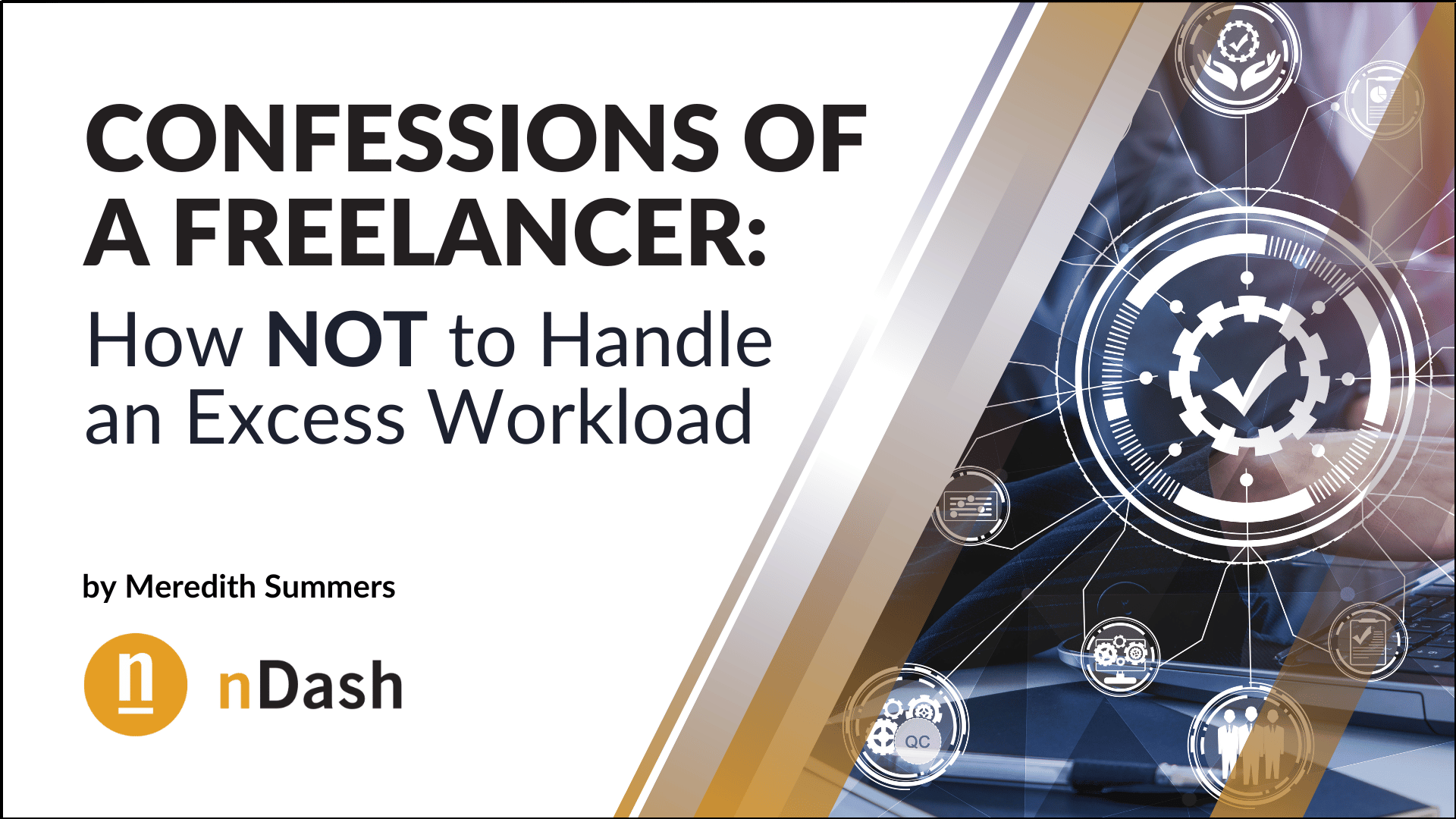Meredith Summers discusses her experiences with how “not” handle an excessive workload as a freelancer.
My Experience as a Freelancer: Then vs. Now
At the beginning of my freelance writing career, I couldn’t have been farther from working at full capacity if I tried. In fact, I found myself being grateful for scammers. At least they wanted me to create content for them, even if they didn’t plan to pay for it.
Today, I’m pretty used to being swamped. I’m not going to say I never feel the pinch of famine, but it’s been a rarity over the past four years. In many ways, I think I squandered the opportunity, though. If you’re looking for ways to cope with the excess work, my experience might give you a step-by-step guide of what not to do. (And I’ll give you the plus side as to why I largely keep doing it.)
Excessive Freelancer Workloads: My Position
I technically own my own S Corp. My company is called It’s Fine, and it wouldn’t surprise me if you’ve never heard of it. My mother has barely heard of it. But most of my clients are cobbled together from different writing platforms. I favor them primarily because I dislike chasing people down for payments, and I’m not the best advocate for my services.
Because if you want my honest opinion, I’d say my writing is mediocre at best, and my business acumen is worse. And yet, even with my immature self-deprecating attitude working against me, I still make a decent living — even by Southern California standards. Of course, I’d probably be making much more if I wasn’t so short-sighted.
Excessive Freelancer Workloads: My Mistakes
Mistake #1: Opting for Quantity Over Quality
Getting paid mostly by the word gets me in a mindset of pumping out paragraph after paragraph just to hit the assignment’s maximum word count. Truthfully, it makes me feel a bit like an assembly worker. When I get swamped, my first instinct is to take all the work and work out the details later.
When you get swamped, you should opt for the highest-paying content and focus on making each piece as picture-perfect as possible. Even if you’re ghost-writing the articles (and thus, can’t use them for official samples), you can leverage these skills to beef up your resume.
The plus side: I make great money this way, particularly because I can be very…wordy.
Mistake #2: Shunning New Clients
When I get swamped, I typically won’t consider taking on new clients. I stick with the devil, I know, even if their rates or content are just “OK.” When looking at things from an economic perspective, I think a lot about time compared to costs. This thought process is because I know the content backward and forwards with my regulars.
So, it’s (sometimes) less about what a client is paying and more about how fast I can finish something. That’s another reason I balk at new clients — it might take me a while to write one piece, and then I never hear from them again.
Going after new clients, asking for more, and stepping outside your comfort zone are the only ways to move up. Like cross-training when working out, you must be willing to take on different kinds of projects. You can let a flood of work get in the way, but I don’t recommend it.
The plus side: I can pretty much guarantee that my regular clients will never return something, making it easier to plan my workday.
Mistake #3: Working On My Own
I’ve certainly thought about hiring people to help with the load, but in the end, I didn’t really want to start my own agency. For me, that would have been the only way for me to avoid turning in someone else’s work as my own.
Working on my own limits me to only what I can do. It means I can’t refer jobs to another freelancer; I can only turn them down. It means that if I did want to move up and do more, I don’t have a freelancer network to lean on. My clients probably couldn’t pick me out of a lineup, and chances are, they wouldn’t miss me if I left. If I had to guess, they wouldn’t think twice about replacing me with an AI bot, either.
The plus side: You can probably work out the benefit of this on your own.
TL;DR: How to Handle Excessive Workloads
Being swamped is a great problem for freelancers, but it’s more than just playing a balancing act with your time. If you stay with the same clients doing the same work, you’ll keep getting the same results. Branch out, consider hiring someone, and get to know other freelancers so you can collaborate.
About the Author

Meredith Summers is a freelancer who covers real estate, healthcare, insurance, marketing, and tech security. Hyperaware of SEO, brand, and voice. Dedicated to giving real advice to real people without the fluff. Check out her profile to learn more about how her work can support your content strategy: Meredeth Summers.
